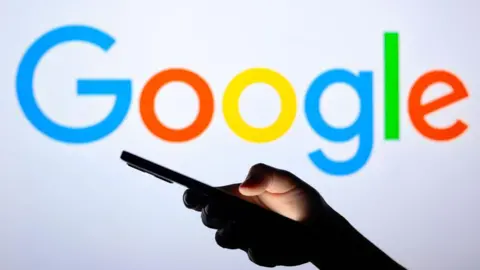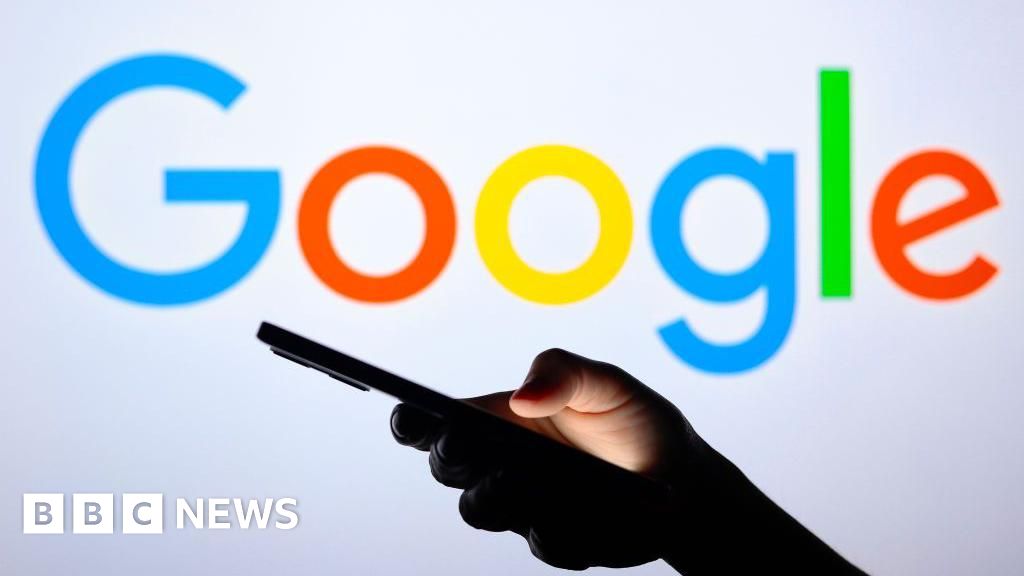What could Google monopoly ruling mean for you?
 Getty Images
Getty ImagesThe tech world is digesting a US judge’s potentially seismic ruling that Google illegally monopolises online search and related advertising
It took four years to get to this point, and Google-owner Alphabet’s inevitable appeal means this the legal process is likely to carry on for some time yet.
But already the potential consequences of the judge’s decision are being considered, ranging from cash fines to other, more complicated remedies.
The US government specifically wants “structural relief” – so what could that look like?
Breaking up the band
The nuclear option would be to demand Google breaks itself into smaller chunks – a move US officials have not ruled out.
Google is much more than just search.
Just look at Android, a firm it bought for $50m (£39.3m) in 2005, which now runs on the majority of smartphones – or YouTube, a $1.65bn acquisition in 2006, which now generates many multiples of that in revenue each year.
The argument might be that all of these can remain under Google, but the actual search engine should be spun off into a separate business.
That might cause consternation for Alphabet executives. But as long as Google remained the default search engine on devices, the average consumer would be unlikely to notice the difference.
Google it
Another potential remedy centres on Google’s practice of paying other companies to use it.
The US said Google was currently paying firms like Apple more than $10bn a year to be pre-installed as the default search engine on their devices or platforms.
The judge agreed.
The contention is, had Google never spent that money, the big firms might have been encouraged to develop their own search experience.
Instead, Apple’s Safari browser for example uses Google by default whenever you use it to search the web.
If remedial action significantly affected Google’s ability to pay other companies to use it, perhaps those firms might start a rival.
Here though they would run up against Google’s incredibly strong customer recognition for search. Despite its own high brand profile, it is hard to imagine telling someone to “Apple” something.
And a lot of people do download rival browsers on their devices anyway, so if you’re using Chrome or Firefox on your iPhone for example, you’re not going to notice if Safari’s search engine changes.
Hard to shift
Something that’s easier to imagine is some kind of choice screen, where people opening a browser for the first time are asked whether they’d like to use Google or an alternative like Microsoft’s Bing.
It is somewhat harder to picture that causing people to abandon Google in their droves, however, for the simple reason that for most people it simply works well.
Those of us with grey hairs will recall Google being one of several search engines to emerge at the dawn of the internet, with familiar rivals including Yahoo and Ask (formerly AskJeeves), and possibly less-familiar rivals including Lycos and AltaVista.
But over the next decade, Google didn’t just become the dominant player in the market, it became part of the way we speak.
Despite Microsoft launching its rival, Bing, in 2009, nothing has yet knocked Google off its perch.
Microsoft boss Satya Nadella testified in Google’s trial, perhaps hoping a judgment like this could finally help give Bing wings.
It takes time
Whatever happens next, past experience suggests it won’t happen quickly.
Back in 1999, Microsoft found itself in a very similar situation to where Google is now.
The firm had just been found by a US judge to have created a monopoly, and a year later a court ordered the firm to be broken up.
Microsoft appealed the decision, and in 2001 the original decision to break it up was overturned.
By the end of 2002 Microsoft had agreed a settlement with the US Department of Justice, which a judge accepted.
But some US states disagreed, and it wasn’t until 2004 – five years after the original ruling – that the settlement was officially signed off.









